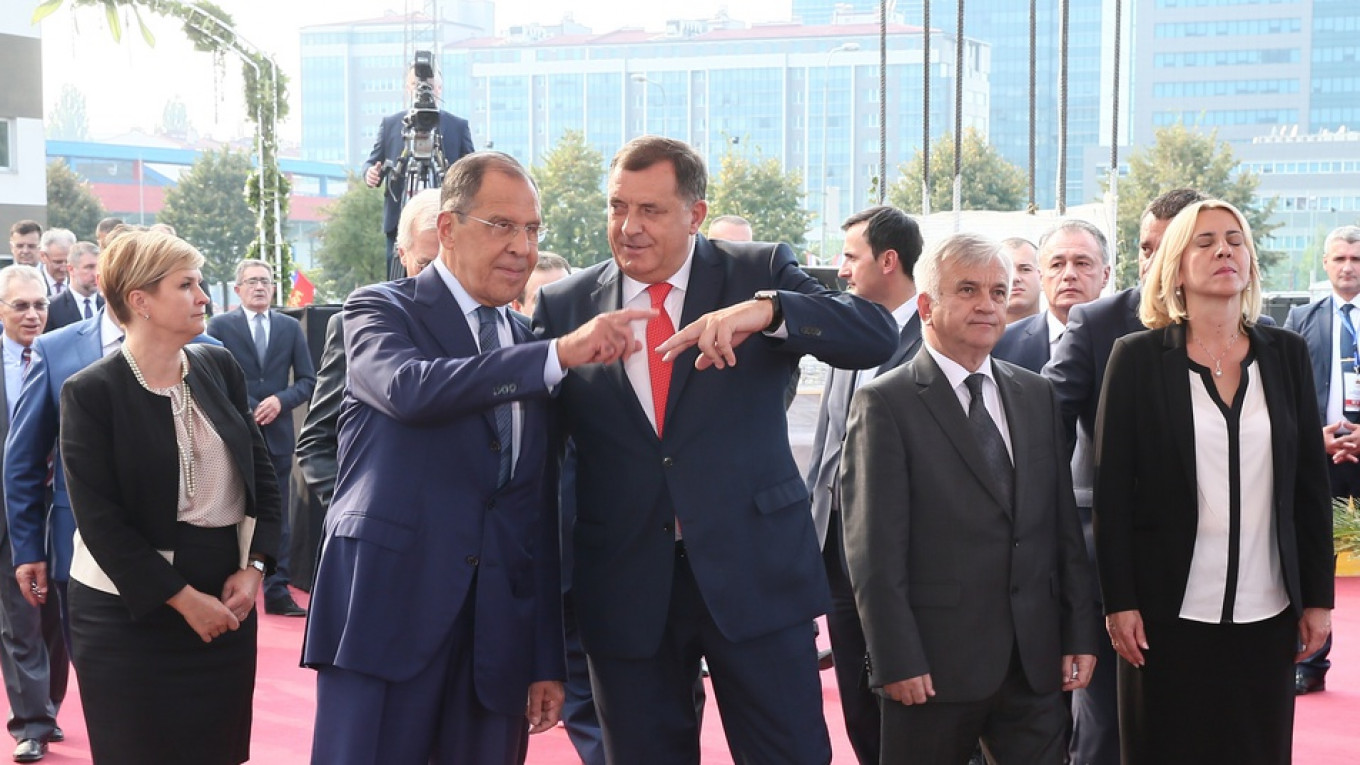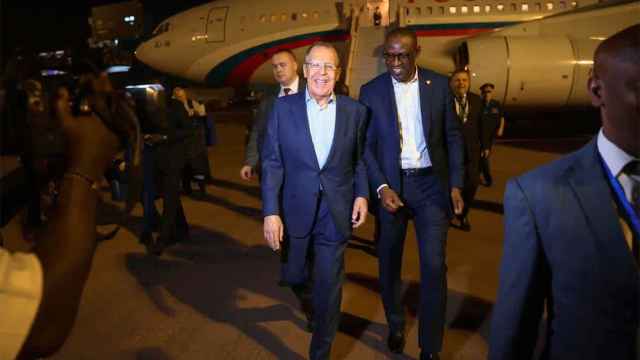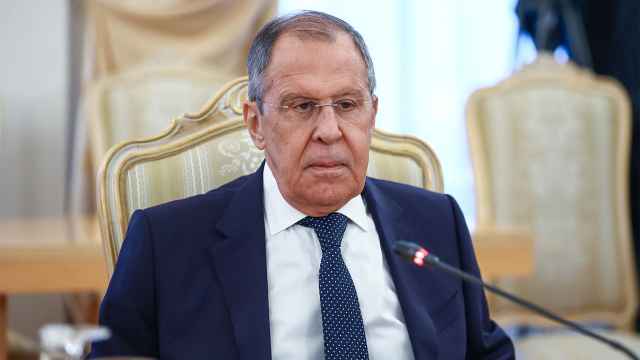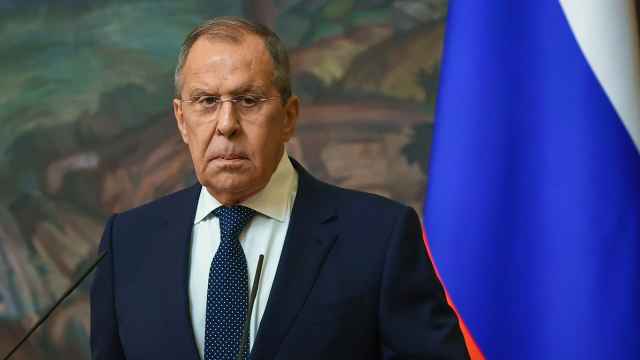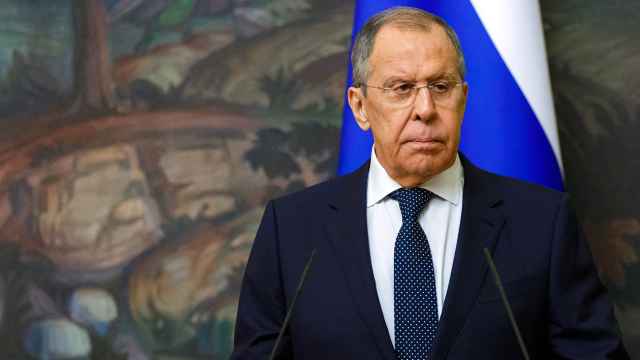Russia supports the peace accords that ended Bosnia's war in the 1990s and the country's territorial integrity, Russian Foreign Minister Sergei Lavrov said on Friday amid a Bosnian Serb leader's calls for secession of a Serb-run region from Bosnia.
Lavrov arrived in Bosnia two weeks before Bosnia's national election, a visit described by local media as a show of support for Bosnian Serb leader Milorad Dodik, even though the Russian said he was not making a recommendation as to who to vote for.
Dodik, who is running for a Serb seat in Bosnia's inter-ethnic presidency, is campaigning on a ticket of a wider autonomy of the Serb Republic that he currently presides over and its ultimate secession from Bosnia.
Dodik, who favors closer ties with Russia rather than the West, hopes that Russia will support his separatist plans at the time when a land swap has been discussed between Serbia and Kosovo, meaning that borders at the Balkans may change again but this time with international blessing.
However, Lavrov, who is due to meet Dodik later, gave no public support for the separatist move. "Russia's stance is there is no alternative to the Dayton peace agreement," Lavrov said at a news conference in Sarajevo held with his Bosnian counterpart Igor Crnadak, referring to the US.-brokered peace deal that ended Bosnia's 1992-95 war.
"We support Bosnia's sovereignty, territorial integrity andthe authorities granted by the constitution to its two entities and three constituent peoples," he said.
Lavrov dismissed allegations that Russia favored and supported particular politicians ahead of the Oct. 7 vote.
"We never make recommendations to anyone for who to vote when it comes to foreign countries, and (we) will always respect the choice of Bosnian citizens and work with those who they entrust," he said.
But he also said that other world powers should not interfere in the Balkans and create new confrontations in the volatile region.
Lavrov will also go to Banja Luka, the Serb Republic's defacto capital, where he will talk to the region's leaders and visit the site of a future Serbian-Russian Orthodox cultural centre, joined by Serbia's Foreign Minister Ivica Dacic.
A Message from The Moscow Times:
Dear readers,
We are facing unprecedented challenges. Russia's Prosecutor General's Office has designated The Moscow Times as an "undesirable" organization, criminalizing our work and putting our staff at risk of prosecution. This follows our earlier unjust labeling as a "foreign agent."
These actions are direct attempts to silence independent journalism in Russia. The authorities claim our work "discredits the decisions of the Russian leadership." We see things differently: we strive to provide accurate, unbiased reporting on Russia.
We, the journalists of The Moscow Times, refuse to be silenced. But to continue our work, we need your help.
Your support, no matter how small, makes a world of difference. If you can, please support us monthly starting from just $2. It's quick to set up, and every contribution makes a significant impact.
By supporting The Moscow Times, you're defending open, independent journalism in the face of repression. Thank you for standing with us.
Remind me later.


